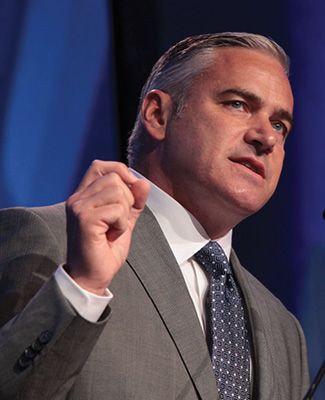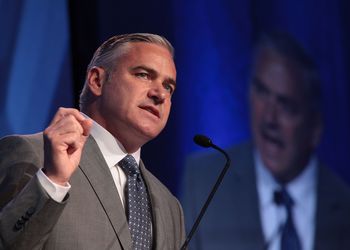A Father’s Pledge

A Father’s Pledge
Steven Kiefer, MSU Alumnus honors his son and works to change laws to help to make our roads safer.
May 14, 2021Four and a half years ago, MSU student Mitchel Kiefer was tragically killed in an auto accident on I-96. The freshman was returning to campus after a weekend at home with his family, including his father, MSU alumnus Steve Kiefer.
In 2016 Mitchel’s death was one of 735 fatalities on Michigan roads. It was the shock of learning his death was caused by a distracted driver that galvanized Steve and his entire family.
National surveys continue to show that a large majority of us understand that distracted driving, particularly texting while driving, is extraordinarily dangerous. But many of us don’t take action.
Steve founded The Kiefer Foundation not only to honor his son’s legacy but to begin the important work on 24 objectives to make our roads safer. He approaches planning for the foundation much like he does his work as an executive at General Motors—with vision, strategy and partnerships.
“Until something like this happens to you personally, I don’t think people really understand the magnitude of the problem,” Kiefer says. “It’s important for people to realize this is a global problem—1.25 million people are killed on the highways of the world every year.
“It’s hard for me to imagine that today and tomorrow and the next day, every day, we’re going to have another 10 people, another 10 families, going through what my family has gone through.
“It’s a horrific thing to think that one small act of lack of paying attention, of distraction, can destroy lives forever.”
Kiefer was appointed to the Governor’s Traffic Safety Advisory Commission (GTSAC) by Michigan Governor Gretchen Whitmer in 2019. The purpose of the GTSAC is to provide leadership in the identification of state and local traffic safety issues and promote recommended strategies to address them. “We’re working now on hands-free legislation. If you’re in a vehicle and you’re holding the phone for any reason, it becomes a primary offense,” Kiefer says.
“We really believe that if the laws are in place and then the awareness and enforcement are in place, that we have a tool that law enforcement can use. Because right now, laws that ban texting still allow people to hold the phone in the car. And it’s just impossible for law enforcement to determine what a person is doing on their phone to distinguish between texting and phone usage.
We believe that the hands-free laws will give law enforcement a tool that will be able to change behavior. Every state that has implemented these laws has seen significant reductions in crashes and deaths as a result of these hands-free laws.
“There are now 25 states that have these hands-free laws in place. Unfortunately, we haven’t been able to get the law passed here in Michigan. There’s a bill that’s being developed and sponsored in the House right now in Michigan. Our hope and expectations are to get as many people on board as possible to support this bill and to support the passing of a law. We have a goal to get the bill brought forward and through the state Legislature and passed into law by September of this year.”
As for the status on those 24 objectives—there are seven left to go
Author: Russ White, '82, '01Contributing Writer(s): Stephanie Motschenbacher, '85, '92






